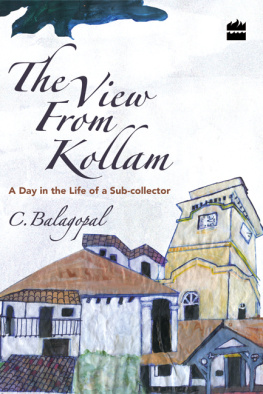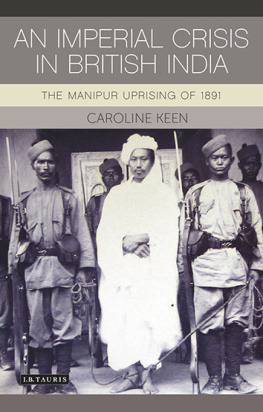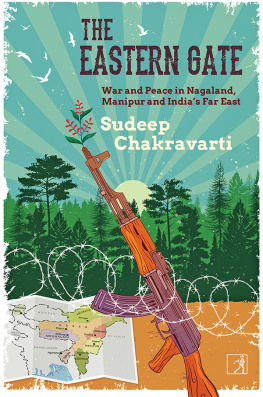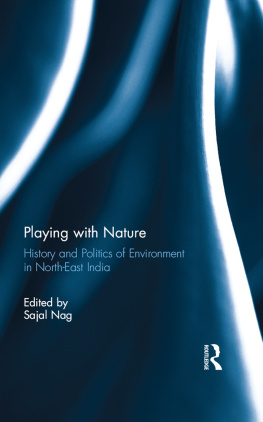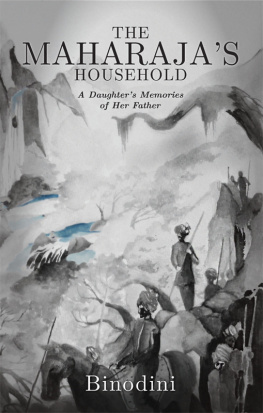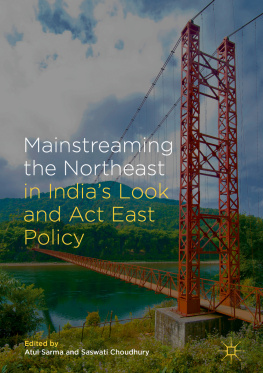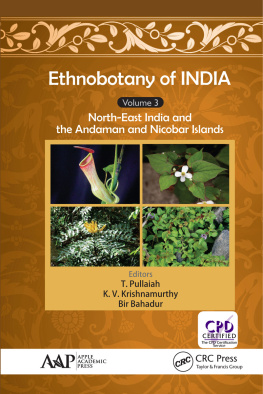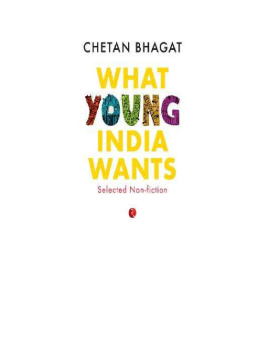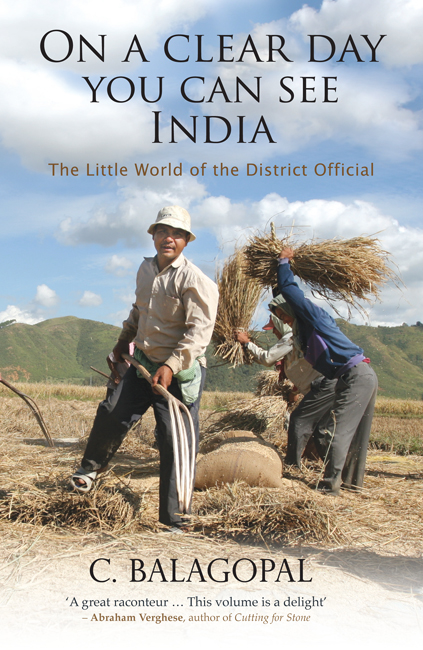
On a Clear Day
You Can See India

The Little World of the District Official
C. BALAGOPAL

HarperCollins Publishers India
This is for you, Vini
Without your encouragement,
this book would not have been completed
Without your persistence,
I would have abandoned my efforts to find a publisher
and tried to go ahead on my own
Contents
| AE | Assistant Engineer |
| ADC | Aide-de-camp |
| ADM | Additional District Magistrate |
| AFSPA | Armed Forces Special Powers Act |
| AIG | Assistant Inspector General |
| APP | Assistant Public Prosecutor |
| BDO | Block Development Officer |
| BRO | Border Roads Organisation |
| BSF | Border Security force |
| CEO | Chief Electoral Officer |
| CM | Chief Minister |
| CrPC | Criminal Procedure Code |
| CRPF | Central Reserve Police Force |
| CS | Chief Secretary |
| DAO | District Agricultural Officer |
| DC | Deputy Commissioner |
| DIG | Deputy Inspector General |
| DM | District Magistrate |
| DPO | District Planning Officer |
| DSP | District Superintendent of Police |
| DTO | District Treasury Officer |
| DVO | District Veterinary Officer |
| EC | Election Commission |
| ERO | Electoral Registration Officer |
| GPO | General Post Office |
| HS | Home Secretary |
| IAS | Indian Administrative Service |
| IB | Intelligence Bureau |
| ICS | Indian Civil Services |
| IGP | Inspector General of Police |
| IO | Intelligence Officer |
| IPC | Indian Penal Code |
| IPS | Indian Police Service |
| JD | Joint Director |
| LDC | Lower-division Clerk |
| MLA | Member of the Legislative Assembly |
| PLA | Peoples Liberation Army |
| RO | Returning Officer |
| SDC | Sub-deputy Collector |
| SDM | Subdivisional Magistrate |
| SDO | Subdivisional Officer |
| SDPO | Subdivisional Police Officer |
| SP | Superintendent of Police |
| UDC | Upper-division Clerk |

O ne afternoon, as I sat in my office in the square, fortress-like collectorate in Kollam finishing some pending work, I was summoned by the district collector. On entering, I was gestured into a seat in front of the large desk behind which sat the jovial incumbent. That day, however, he bore a grave expression. He looked up and with some asperity asked me about a meeting involving representatives of students unions, transport workers unions and the police that he had asked me to chair when he was called away on some urgent work. I explained that the meeting had been dissolved and told him the reasons that prompted me to do so. I added that all present had been told in no uncertain terms about the consequences that would follow if the students whose unruly behaviour was the reason why we had convened resorted to stopping buses in order to forcibly collect money for their fund. I had also cited various sections of the Indian Penal Code (IPC) and Criminal Procedure Code (CrPC) that covered their actions, a list that included dacoity, unlawful confinement, interfering with traffic on a public road, intimidation, and so on. As I warmed up and got more animated, the district collector sat back with a smile growing on his face. Finally, he said with mock exasperation: Balagopal, this is Kerala, not Manipur.
This was a refrain that I heard often, something I only gradually came to understand. It was clearly based on the unstated premise that Manipur belonged to a region that was quite different from the rest of India, where presumably even the laws were different (which was not true), and where the administration approached issues from a very different perspective (which was quite true).
This book started out as a collection of anecdotes from my brief sojourn in Manipur nearly three decades ago. Friends who heard some of these stories (usually over a glass of rum) have often suggested that I put them together in a bound text.
So I went ahead and did just that. The person most responsible for these stories being written down is Vinita, who came into my life less than ten years ago. Over the past year, she has been persistent in her efforts to get me to write, and I am grateful to her for this, as I found myself enjoying the process of unwrapping memories that had lain undisturbed for many years in the archives of my mind. It was not so difficult to accomplish since I had some notes and diaries from those days to work with, as well as memories that were remarkably fresh despite the passage of time, and the great distance not only in physical terms from the places of their occurrence. Faces and sights and landscapes and smells and sounds and tastes from a long time ago floated up as each memory was recalled.
I am sixty as I write these words, no longer the twenty-five-year-old I was when I first went to the north-east. I think I have recounted the incidents and situations with reasonable accuracy, but it has been an effort to remember that I would have viewed many things quite differently at that age. Today, I would probably get angry about fewer issues, would accept many more things, and would advocate patience in almost everything. In those days, I too would have wanted to change things in a hurry, I too was probably not willing to compromise on many things I would let pass today, I too would not have accepted that certain things are inevitable. Then, I too would have probably been impatient with a conservative approach, saying instead that there is no time to lose, and refusing to accept that in the affairs of men, time is often the only resource we have in abundance.
I read somewhere that Wittgenstein said, It is difficult to know something and to act as if you did not know it. But I cannot claim that in those days I even had an inkling of the terrible tragedy that was to unfold in later years. At that time, the north-east still appeared to be an impossibly beautiful place, with beautiful people, sparkling rivers that could turn in seconds into raging white cataracts, and dense vegetation of almost Amazonian fecundity that mastered everything that came in its path. Where the heavens opened up to make the giant rivers rise in vast sheets of water that defied description. Where nature ruled, and man was still incidental, an aberration, tolerated by nature. By stressing the particular, especially the inner processes of a typical small government office and the people involved in the stories, I have tried to resist this tendency of looking at the bigger picture, but am certain that I have not been entirely successful. I seek the readers indulgence where such intrusions have occurred.
So, it has been doubly difficult to not only trawl through notes and memories and recapture somewhat the mood of those days as well as the drama and the tension, but also to honestly portray things as they happened, without allowing myself the benefit of not only hindsight but also age and the maturity which is supposed to go with it. I have not assigned myself any special role other than that of an observer and bit player in most of the stories, a minor protagonist in a few, and one among a few key players in a couple. In chapters where I am one of the few important players, my role would be more to bring out the inner story without which the incident cannot be understood fully.
Next page

